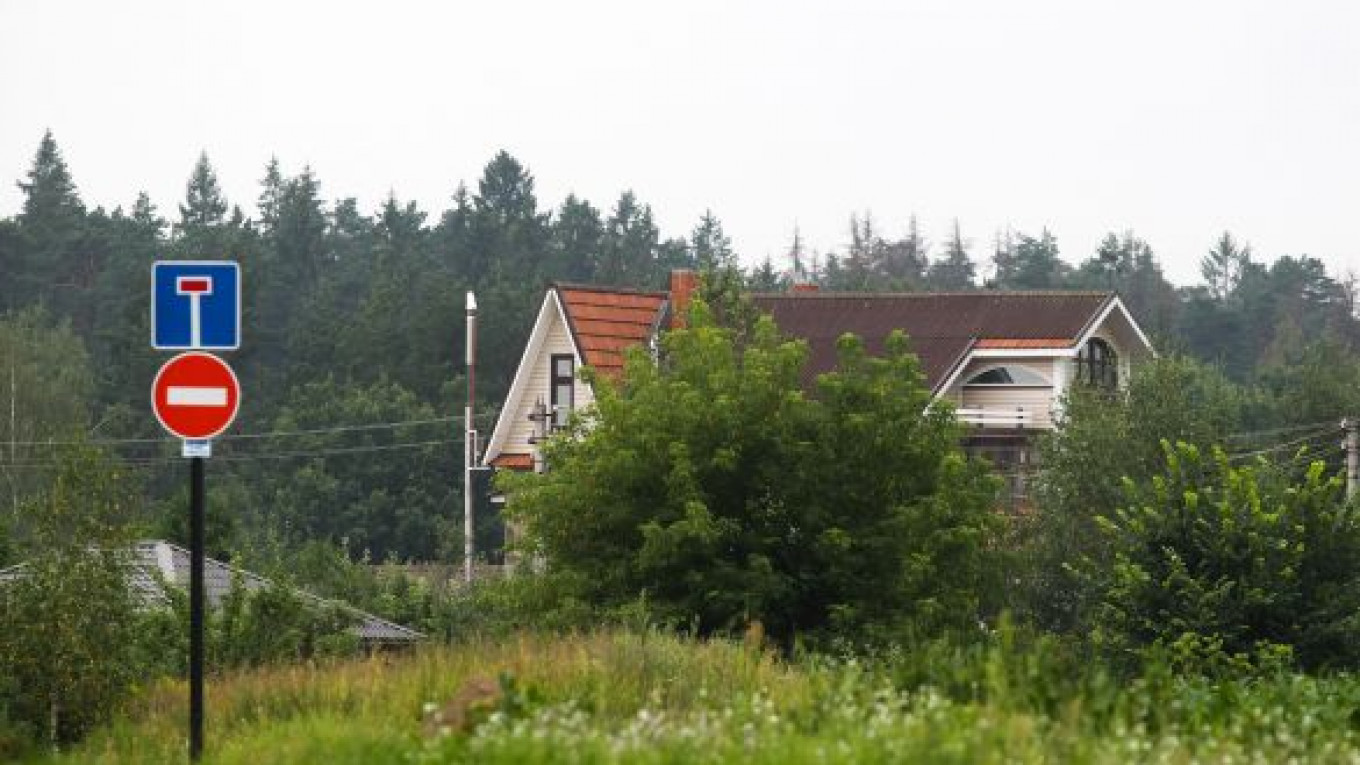Mayor Sergei Sobyanin is promising that the piece of the Moscow region appended to the capital earlier this year won’t be covered with new construction but will be preserved as a tree-dotted residential area.
“No type of megacity is being planned” for the land, Sobyanin said.
“When we were requesting this land, the mindset was the opposite: to preserve it as it mostly is today, namely as green spaces, zones and large park lands,” the mayor on the TV-Tsentr television station Saturday, Itar-Tass reported.
The territory was officially transferred from the Moscow region to the city on July 1 under a proposal announced by then-President Dmitry Medvedev in June 2011 to extend the borders of the capital and transplant government offices.
The plan, aimed at reducing the high numbers of office workers in the city center and easing traffic congestion, extended Moscow’s border southwest all the way to the Kaluga region, nearly 150,000 hectares to the capital and increased its size almost 150 percent.
Sobyanin said, “The full build-up is planned for the area between, for example, Butovo and Solntsevo,” but he didn’t specify what type of construction ― housing, government buildings, roads or all of those ― would occur in that section.
The mayor bluntly explained that he wants to avoid massive construction like that which has taken place in the city center, saying the capital “is basically ringed by enormous neighborhoods with 25-story apartment buildings in which there aren’t enough public facilities, there isn’t transportation infrastructure and, worst of all, there aren’t jobs.”
He added that people living in those residential areas are forced to head into the city center to find work, and “that is exactly what’s creating the transportation collapse.”
In the newly added territory, real estate players are gearing up for a surge in residential demand.
A billboard along Kaluzhskoye Shosse advertises apartments in the small regional city of Troitsk, billing it as part of the “new Moscow.”
Meanwhile, developers are putting up housing for middle-class and high-end buyers.
Gasan Arkhulayev, general director of Sezar-Stroi, which is constructing a sprawling townhouse complex called Nikolin Park that will have close to 1,600 apartments, said both the quality and prices of residential construction in the area are increasing.
In addition to the 125,000 square meters of housing that Sezar Group is building in Nikolin Park on a parcel of land that it bought in April 2011, the firm is considering buying up other lots in extended Moscow, Arkhulayev said.
Related articles:
A Message from The Moscow Times:
Dear readers,
We are facing unprecedented challenges. Russia's Prosecutor General's Office has designated The Moscow Times as an "undesirable" organization, criminalizing our work and putting our staff at risk of prosecution. This follows our earlier unjust labeling as a "foreign agent."
These actions are direct attempts to silence independent journalism in Russia. The authorities claim our work "discredits the decisions of the Russian leadership." We see things differently: we strive to provide accurate, unbiased reporting on Russia.
We, the journalists of The Moscow Times, refuse to be silenced. But to continue our work, we need your help.
Your support, no matter how small, makes a world of difference. If you can, please support us monthly starting from just $2. It's quick to set up, and every contribution makes a significant impact.
By supporting The Moscow Times, you're defending open, independent journalism in the face of repression. Thank you for standing with us.
Remind me later.






